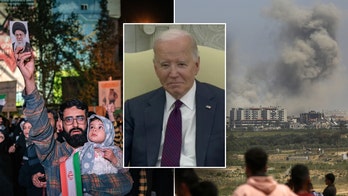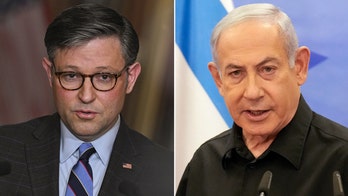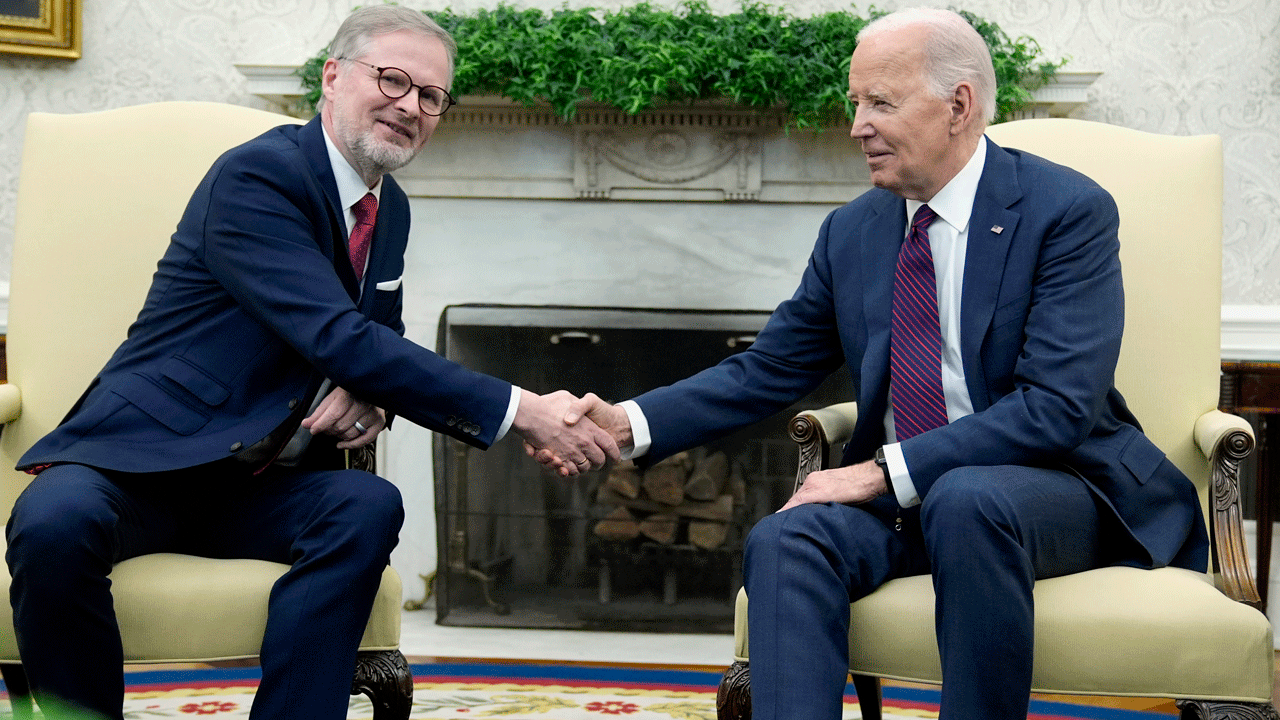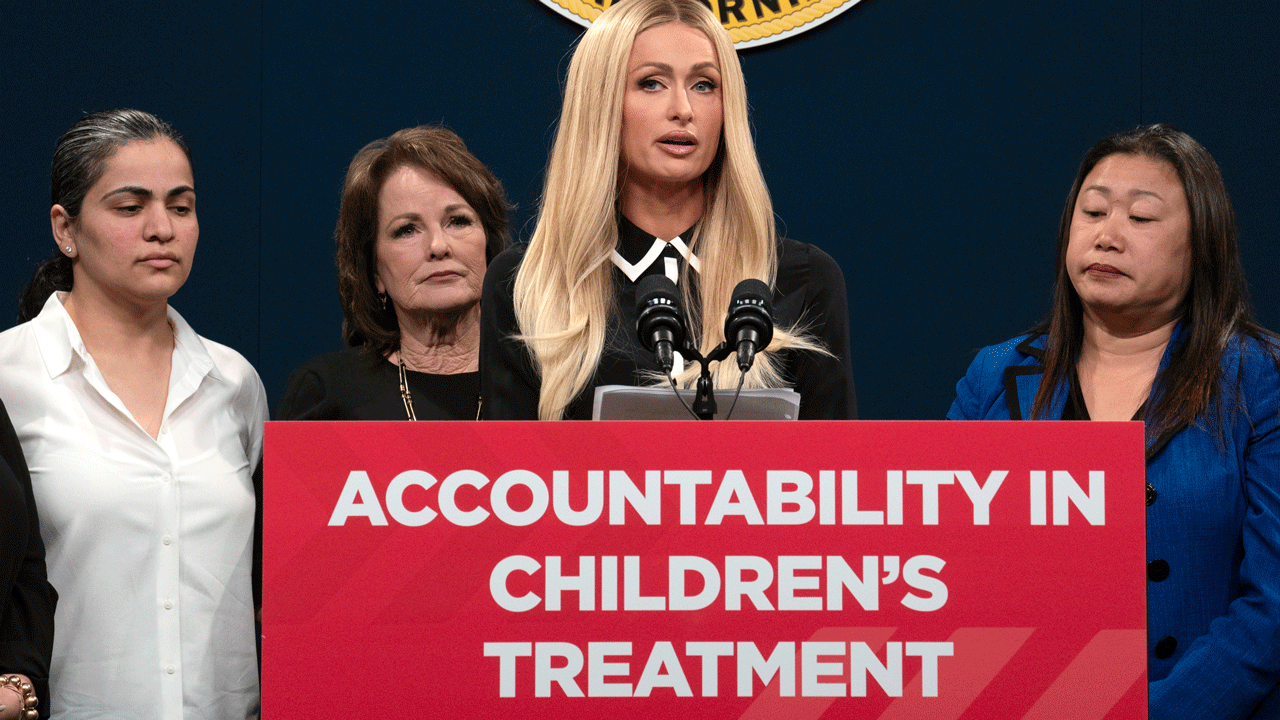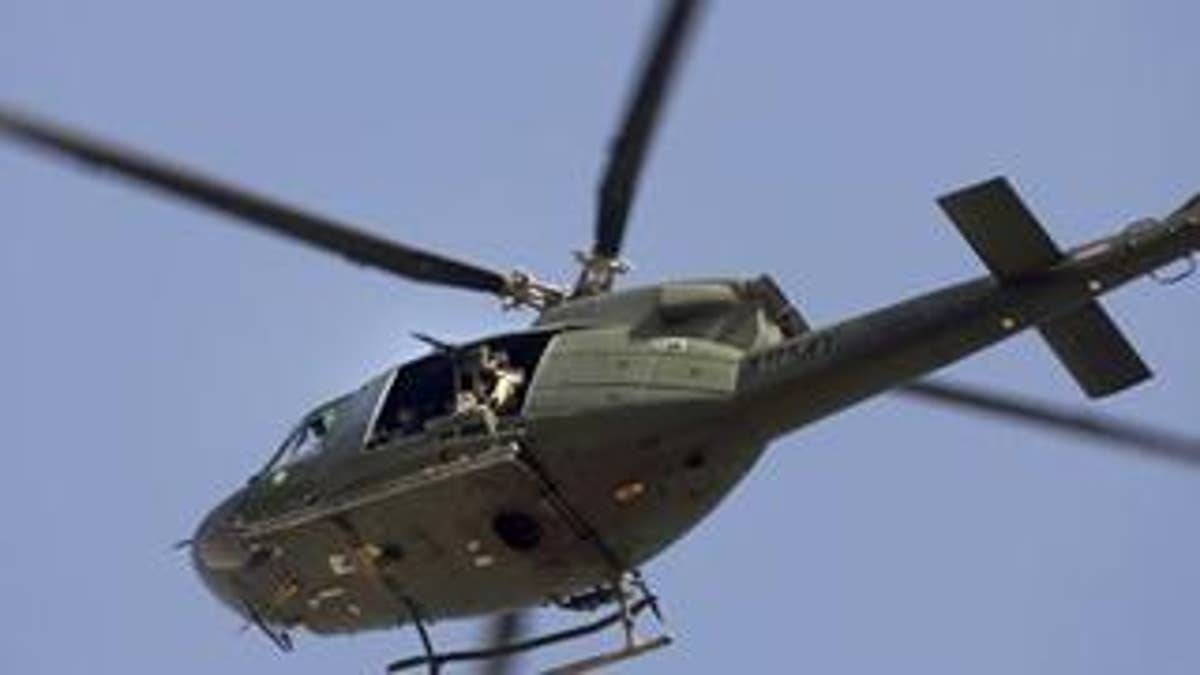
A hostage standoff in Pakistan is adding to growing concerns about the stability of that nuclear-armed country as President Obama decides whether to shift U.S. focus to Pakistan or ramp up the war in Afghanistan.
Further complicating U.S. relations with Pakistan, a key ally in the region, is the Pakistani military's hostility toward conditions recently attached to a nearly $2 billion aid package.
Military advisers are pushing Obama to increase manpower in Afghanistan to battle the Taliban, but some other advisers reportedly are suggesting that the U.S. should consider allowing the Taliban into a political role in Afghanistan's future so that the U.S. can turn its attention toward eliminating roots of the Al Qaeda threat in Pakistan.
But the new violence in Pakistan could undercut any concessions being considered for the Taliban.
"What happened today in Pakistan should encourage [Obama] to follow the advice of the military because they know better the strength of the Taliban," Walid Phares, a terrorism analyst and senior fellow at the Foundation for Defense of Democracies told FOXNews.com.
"This is a new model that the Taliban will take and multiply in Afghanistan and Pakistan," unless additional U.S. troops are sent, he said.
The Pakistan military freed 22 hostages during a rescue operation, while 3 hostages and 4 militants were killed.
The attack, which left 10 people dead -- including two ranking officers -- was the third major militant strike in Pakistan in a week. It came as the army was planning an imminent offensive against the insurgents in their strongholds in the rugged mountains along the border with Afghanistan.
Meanwhile, Obama is conducting war deliberations to determine which strategy to pursue in Afghanistan, an 8-year-old conflict that military commanders are pressing him to escalate.
The top U.S. commander in Afghanistan, Gen. Stanley McChrystal, would like an additional 40,000 troops to fight the Taliban and pursue Al Qaeda while some White House officials, including Vice President Biden, prefer to scale back the war effort and focus on defeating Al Qaeda in Pakistan.
Phares said Obama should view Saturday's attack as a signal.
"It is a very strong signal to President Obama and he will have to take it into consideration," he said. "And if he doesn't take it into consideration, then the Taliban will escalate it further."
Retired Lt. Gen. Tom McInerney told FOX News that Obama should shift more resources to Pakistan despite the hostage standoff.
"We need to be targeting more in Pakistan, there's no question," he said. "But what most of all we need to do is get the Pakistani army commander, Gen. Kayani, but we need to get the Pakistani army, which is a very capable army, to be attacking those areas in south and north Waziristan where Al Qaeda is hiding out right now."
McInerney said U.S. counterterrorism forces need to continue their unmanned pilot attacks.
"But that will not solve the problem until the Pakistan army gets on the ground," he said.
Yet shifting the focus of the war to Pakistan may pose more challenges and problems than Afghanistan.
On Wednesday, Pakistan's powerful military raised "serious concern" over the strings attached to U.S. legislation that would provide $1.5 billion a year over the next five years, tripling nonmilitary assistance to the country.
The bill authorizes "such sums as may be necessary" for counterterrorism assistance, but only if Pakistan cracks down on militancy and meets other conditions.
The army brass said in an unusual public statement that the conditions would lead to U.S. meddling in Pakistan's affairs -- comments that could bolster opponents of the weak U.S.-backed civilian administration in Islamabad.
The aid bill, U.S. officials say, is meant to alleviate widespread poverty. But many Pakistanis see it as a sign of unwanted U.S. influence.
Phares told FOXNews.com that the Pakistan army does not want to been seen as openly receiving aid from the U.S. because that plays into the hands of the Taliban.
"The Taliban propaganda machine will say this army is receiving help from the enemy, which is killing our brothers," he said.
Phares should the U.S. should be publicly supporting McChrystal and privately sending support to Pakistan, not the other way around.
Pakistan "wants us to send support without bragging about it," he said. "The propaganda machine of the Taliban is making this into a big issue because they want to create a problem between Pakistan and us."
The Associated Press contributed to this report.

